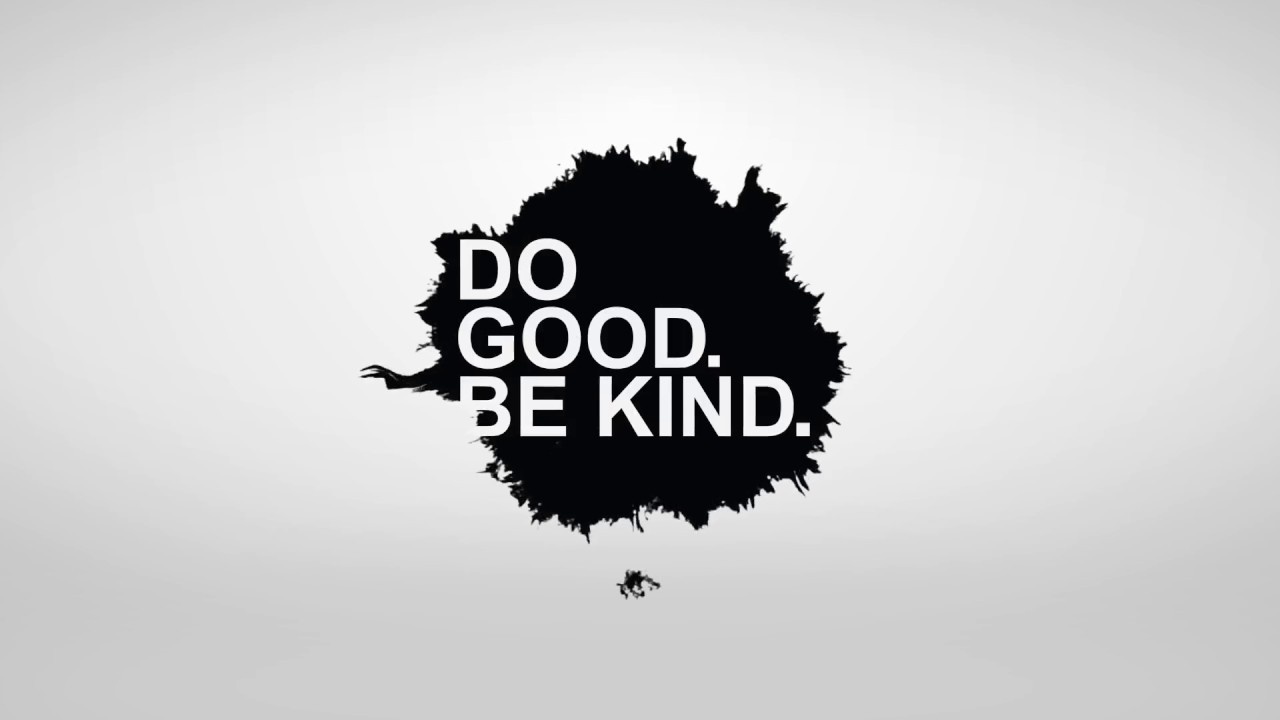A Review of My Book of Zen Stories - "A Handful of Nothing"
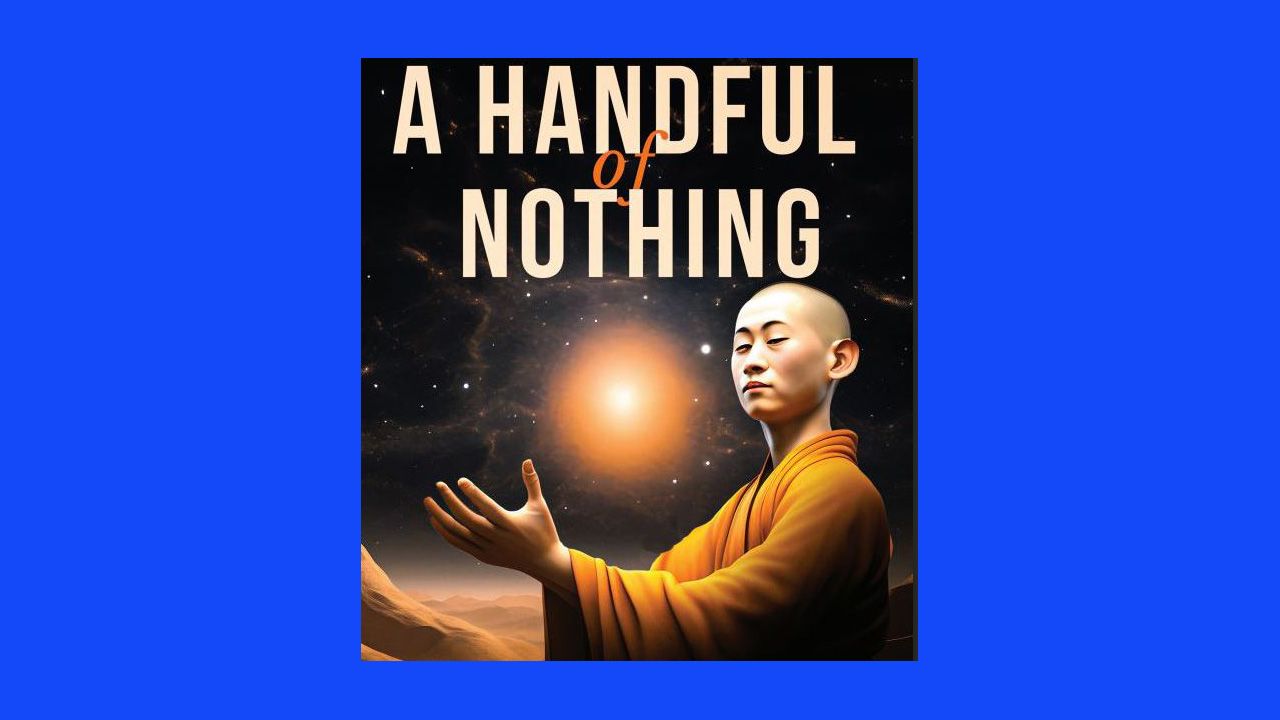
Dan Djurdjevic, a martial artist and author in Australia, wrote this review of my new book, "A Handful of Nothing." Here is Dan's review:
I have just read an electronic preview copy of Ken Gullette's absolutely brilliant book “A Handful of Nothing”.
This collection of 88 vignettes/stories explores the fundamental tenets of Zen (Chan) Buddhist philosophy, with particular emphasis on the concept of “nothingness” or “emptiness”. Karate practitioners will be familiar with this from the expression “mushin” (“empty mind”) or just the character for “kara” - “空” (“empty [as the sky]”).
This collection is easily the most accessible and insightful treatment of its subject matter I have ever encountered - by far.
The engaging, simple-yet-profound, soothing-yet-powerful stories flick past with the pages - just like ephemeral moments of life. However, each of these “moments” floods you with insight and inspiration.
This is a book you might pick up off a coffee table or bookshelf out of idle curiosity....
How to Use Zen in Daily Life - "A Handful of Nothing" Points the Way
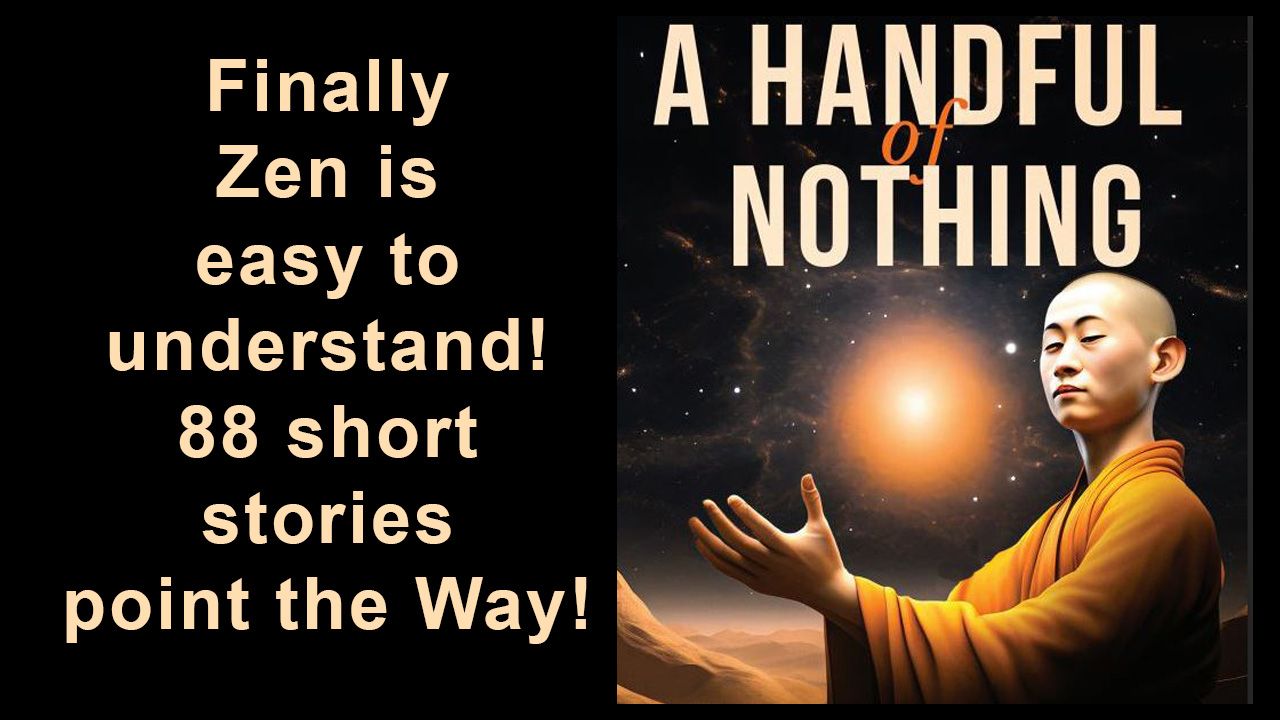
I began reading, studying, and contemplating Zen Buddhism and philosophical Taoism in the 1970s. It wasn't easy to figure out how to use Zen in my daily life, even with wonderful books such as "Zen Buddhism," by Christmas Humphreys. But I worked on it.
I could find no good Zen books that made it as easy to understand Zen Buddhism as the old Kung Fu TV series did back in the 70s. The writers of that show had the actors portray living versions of Zen koans, stories of a young monk being guided by old masters who imparted their wisdom. I started watching the show for the fight scenes (hey, I was only 19), but became fascinated by the philosophy. After growing up in the racist South in a conservative Christian church that told us we were sinners from the day we were born, the TV series introduced me to an entirely new and peaceful way to look at the world. I wanted to find a book that told me how to use Zen in daily life.
Most of the books I read on Zen Buddhism were abstract, focusing o...
What You Believe You Can Achieve in Martial Arts and Everything Else
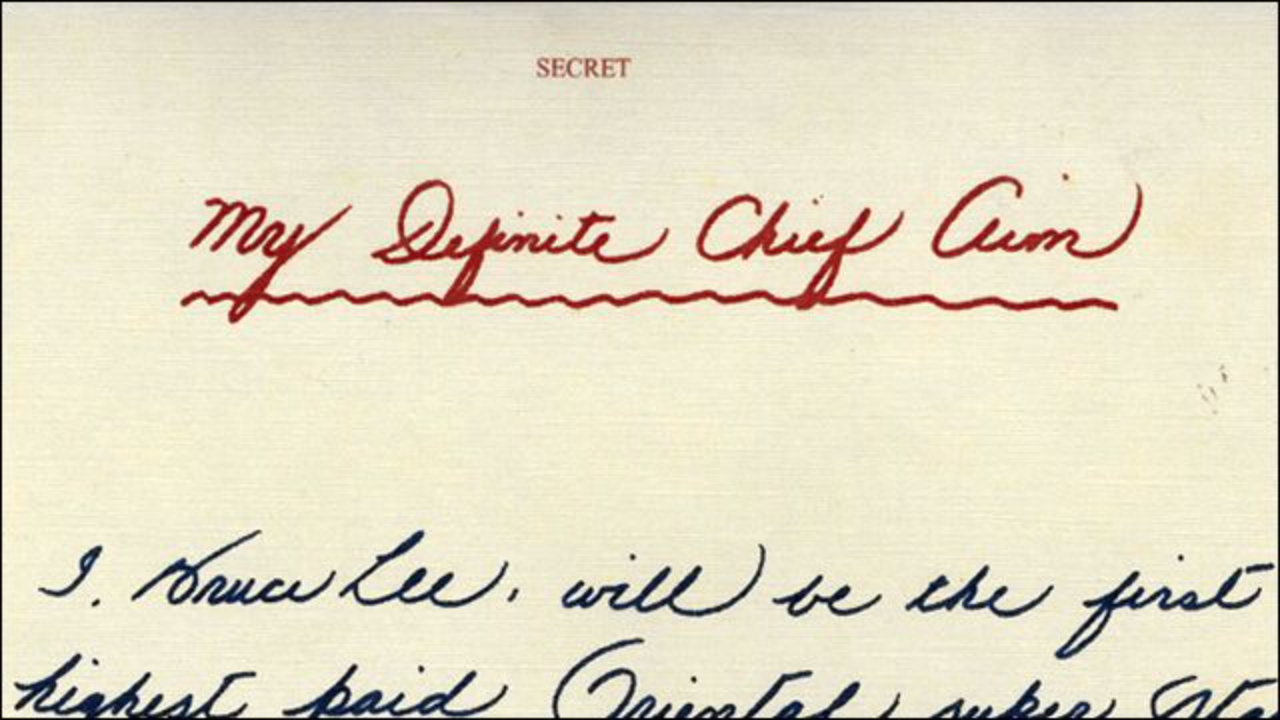
In 1969, Bruce Lee wrote a letter to himself, promising to be world-famous by 1970 and by 1980, he would have $10 million. He wrote that he would do this by giving "electrifying" performances. He set a goal to become the highest-paid "Oriental" actor in Hollywood.
We all know what happened. He did not live to see his greatest fame, but more than 50 years after he died, we're still talking about him and wearing his t-shirts. Okay, maybe you aren't, but all the cool kids are wearing them. :)
The great comic actor Jim Carrey must have heard this about Bruce Lee, because in 1985, Jim wrote himself a check dated 10 years in the future -- 1995 -- and he wrote the check for $10 million.
Both of these guys could SEE themselves successful. They believed it. And they took steps to achieve it.
I don't have $10 million, but I know the power of setting a goal, writing down the steps to achieve that goal, and then taking those steps, one by one, until the goal is reached.
In 2008, a week after...
The Young Zen Monk and the New Year's Resolutions
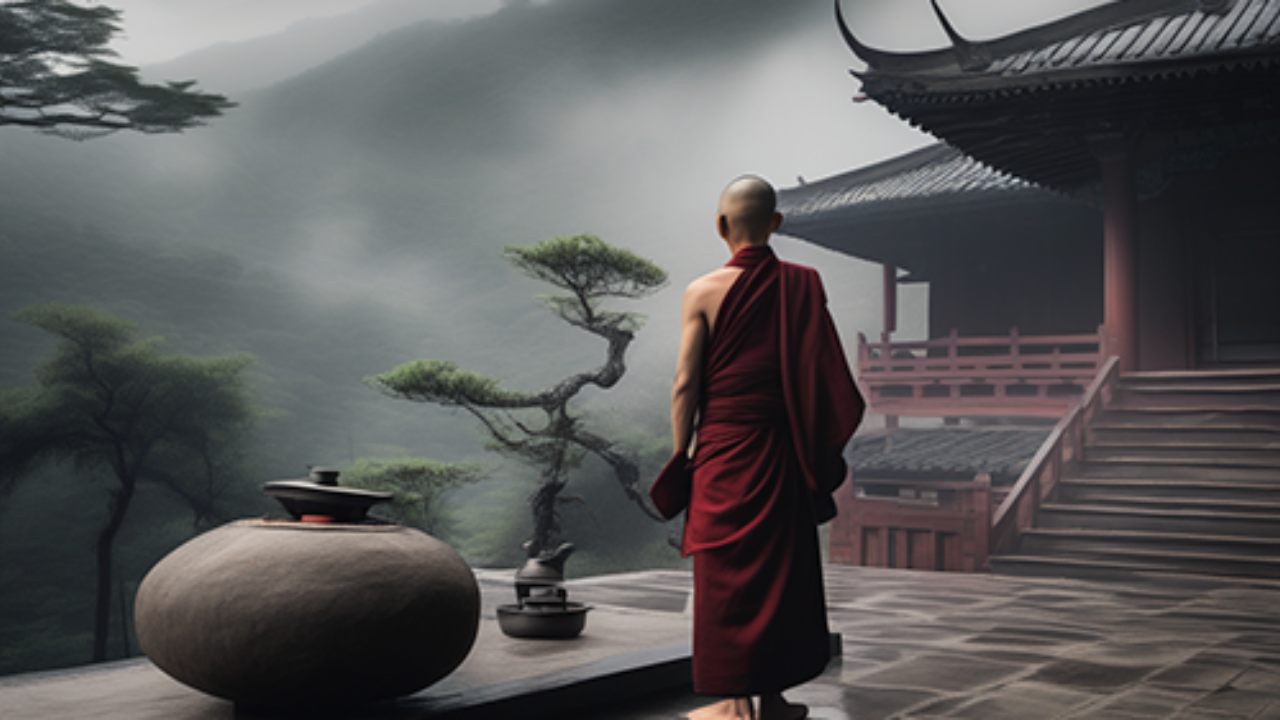
The day after the young monk visited the village during the Spring Festival, he was sweeping the hallway near the monastery’s kitchen, trying to remain mindful of his chore, but his mind kept turning to the new year approaching. He knew that people looked ahead to the new year and set goals for personal achievements, but this was not something he had ever done.
The old master emerged from the kitchen with a cup of tea.
“Master,” the monk said, leaning his broom against the wall, “is it wrong to set goals for a new year?”
“What goals would you like to set?”
After thinking a moment, the young monk said, “Success. Enlightenment. Those would be my goals for the new year.”
The master took a sip of tea. “As long as the goals are set mindfully, I would encourage you to align them with your values. The goals should not be pursued with attachment or ego-driven desires.”
“Is a goal of success ego-driven?”
“I would answer your question with a question. What are your daily activities now?”
...A Parable: The Zen Master and the Tree
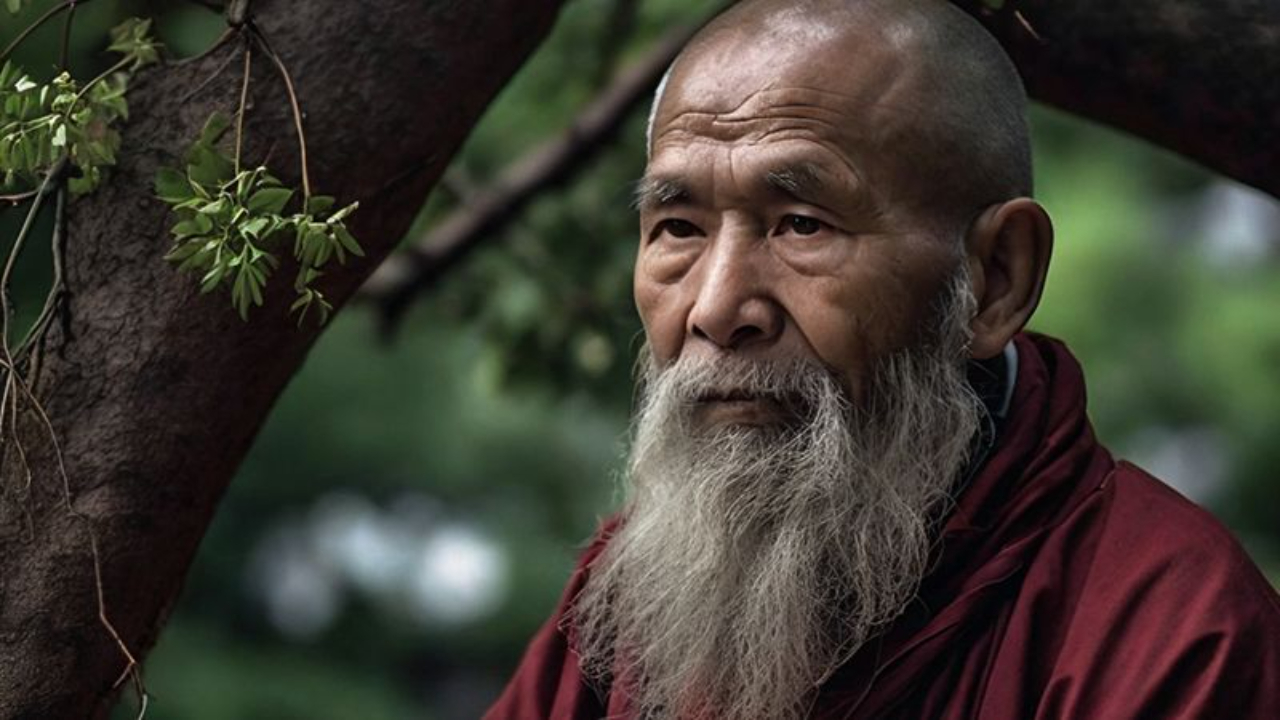
In a serene Zen Buddhist monastery nestled among mist-covered mountains, a young monk approached the master, his heart heavy with defeat.
He explained to the master that he had striven for years to understand the nature of the mind, yet enlightenment eluded him, and recent personal tragedies had further clouded his path.
The elderly master led the young monk to a garden where a single tree stood. This tree, once vibrant and full of life, had been struck by lightning, leaving it scarred and half-destroyed.
The master pointed to the tree and asked, "What do you see?"
"A broken tree, master, damaged by misfortune," the young monk said.
"Look closer," said the master.
The monk stepped closer to the tree and examined the trunk. He noticed new shoots emerging from the scars, reaching delicately toward the sky.
"This tree, struck by lightning, faced its own form of tragedy," said the master. "Yet, it persists, finding a way to grow anew amidst its scars. Its branches may be fewer, but...
Five Ways of Centering Yourself During Anxious or Negative Times

If you have listened to my podcast, you'll hear me encourage listeners to "remain centered at all times."
In Taoist philosophy, one of the fundamental principles is to find balance and harmony within yourself and with the world around you. To center yourself in the face of anxiety about the future, here are some recommendations:
-
Focus on the present moment: Instead of worrying about what the future might bring, focus on what you can do in the present moment to take care of yourself and your needs. This might mean practicing mindfulness or meditation such as qigong to help quiet your mind and bring your attention to the present. If you are washing your car, sweeping the floor or reading a book, focus on that one thing and if stray thoughts cross your mind, let them go and refocus to that one thing.
-
Let go of attachments: In Taoism, as in Buddhism, it is believed that attachment to things outside of ourselves can lead to suffering. Instead, try to let go of attachments to outc...
Remaining Centered Even When the Ceiling Collapses


Do you know the story of the Buddha and the 84 problems?
The Buddha was passing through a village and a farmer wanted to ask some questions. The farmer asked if the Buddha could make it rain so his crops would grow. The Buddha said, "No, I cannot help you with that."
The farmer asked if the Buddha could get his son not to move away from the farm to the city, so the farmer would have someone to help him with his crops. The Buddha said, "No, I cannot help you with that."
The farmer told the Buddha that he owed money to some people, and asked the Buddha if he could get the people to stop demanding payment until the farmer could save more money. The Buddha said, "No, I cannot help you with that."
The farmer was getting angry. "What good is Buddhism if it can't help me with these problems?"
The Buddha said, "Everyone has 83 problems. I can't help you with those. I can, however, help you with the 84th problem."
The farmer thought for a moment and asked, "What the hell is the 84th pro...
In the Concrete Jungle of Chicago, a Flower of Kindness Blooms
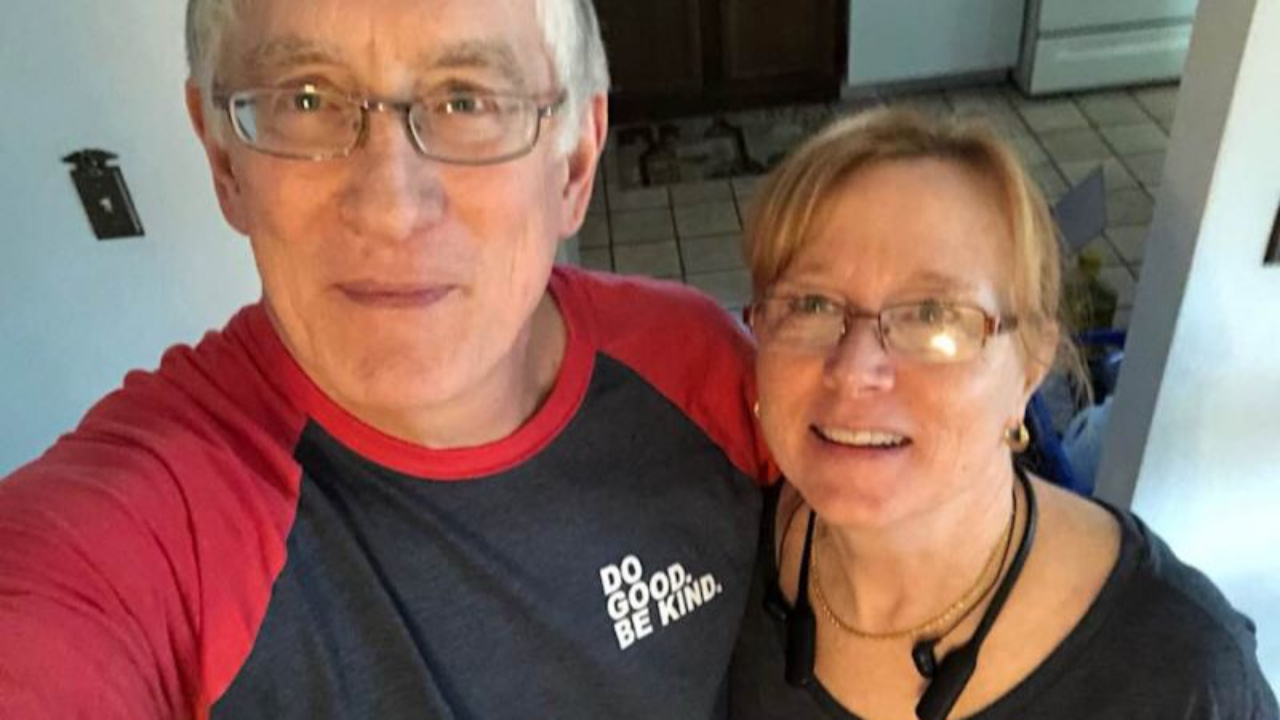
Rob and Kathryn Swarczewski of the Chicago area deserve a salute. In a city that has a reputation as a dangerous place, they showed two strangers -- Nancy and me -- kindness and generosity. Here is the story.
I rarely find myself in a situation where I have no idea what to do. It is unknown territory. I am always confident I can handle any situation. Like water, I'll find a way around an obstacle.
But when United Airlines left Nancy and me twisting in the wind in Chicago last week, I was at a loss.
We were flying home from Philadelphia, where we spent four days seeing sights and, while Nancy went shopping, I spent four hours each day at a great Taijiquan workshop by Nabil Ranné, who had flown in from Germany.
The first leg of the return flight on Monday evening, May 16 was from Philly to Chicago. Due to severe weather, we sat in the plane on the tarmac for nearly 90 minutes in Philly before taking off. We were supposed to change planes at O'Hare for the trip home to Moline, but sev...
A Vision of the Final Moments of Life and the Two Questions on My Mind

I received some tough news from my pulmonologist last week. Dr. Wong showed me the CT scan taken in December, when I spent four nights in the hospital because of a large blood clot in my left lung. The blood thinners I had been taking since June, when the clots developed, had not worked in this one case, and the clot was so big, it was threatening the blood supply to the left lung. Just a trickle of blood was getting in.
After we looked at the scan, he said this is major. If the blood clot is not reduced through the use of the blood thinners during the next six weeks, he will refer me to the Mayo Clinic, where I will be evaluated and it is possible they will put my heart on a bypass machine, go into the lung and clean out the clot. The evaluation will tell Mayo whether my heart is likely to withstand the operation.
"This is major," the doctor said. "But you have been through major things before."
These are the times when the practice of centering is not just theory. This is when it ...
Connecting is a Skill and Philosophy from Martial Arts You Can Use in Daily Life
